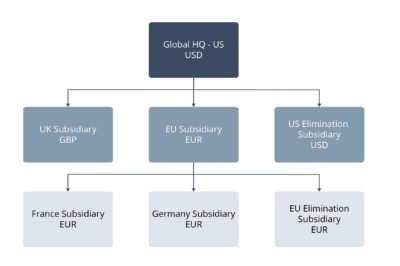
Managing intercompany accounting in NetSuite ERP involves handling financial transactions and accounting processes between different subsidiaries or entities within the same organization. NetSuite provides robust features and functionalities to streamline intercompany processes and ensure accurate financial reporting across all subsidiaries. Here are some key aspects of managing intercompany accounting in NetSuite ERP:
1. Intercompany Transactions: NetSuite allows you to record intercompany transactions, such as sales, purchases, transfers, and expenses, between various subsidiaries. These transactions are automatically linked, ensuring consistency and eliminating the need for manual reconciliations.
2. Intercompany Eliminations: NetSuite facilitates intercompany eliminations during the consolidation process. This ensures that intercompany transactions do not affect the consolidated financial statements and prevents double-counting of revenues, expenses, and other balances.
3. Intercompany Billing and Invoicing: With NetSuite, you can generate intercompany bills and invoices accurately. The system automatically tracks due amounts between subsidiaries and streamlines the settlement process.
4. Intercompany Cost Allocation: NetSuite enables you to allocate shared costs, such as overhead expenses, between different subsidiaries based on predefined allocation methods.
5. Intercompany Journal Entries: You can create intercompany journal entries within NetSuite, allowing you to transfer funds between subsidiaries, allocate revenues, and perform other necessary financial adjustments.
6. Currency Management: NetSuite supports multiple currencies, which is crucial for intercompany transactions involving subsidiaries located in different countries. The system automatically handles currency conversions and updates exchange rates as required.
7. Intercompany Reporting: NetSuite offers comprehensive reporting capabilities, including intercompany reporting. This allows you to analyze and monitor financial data across subsidiaries, aiding in decision-making and financial planning.
8. Custom Workflows: You can customize workflows in NetSuite to align with your organization’s unique intercompany processes and approval requirements.
9. Audit Trails: NetSuite maintains a detailed audit trail of all intercompany transactions, ensuring transparency and compliance with financial regulations.
10. Consolidation: NetSuite’s consolidation features enable you to consolidate financial data from different subsidiaries into a single set of financial statements for the entire organization.
By effectively managing inter-company accounting in NetSuite ERP, organizations can improve financial visibility, accuracy, and efficiency across their multi-entity operations.